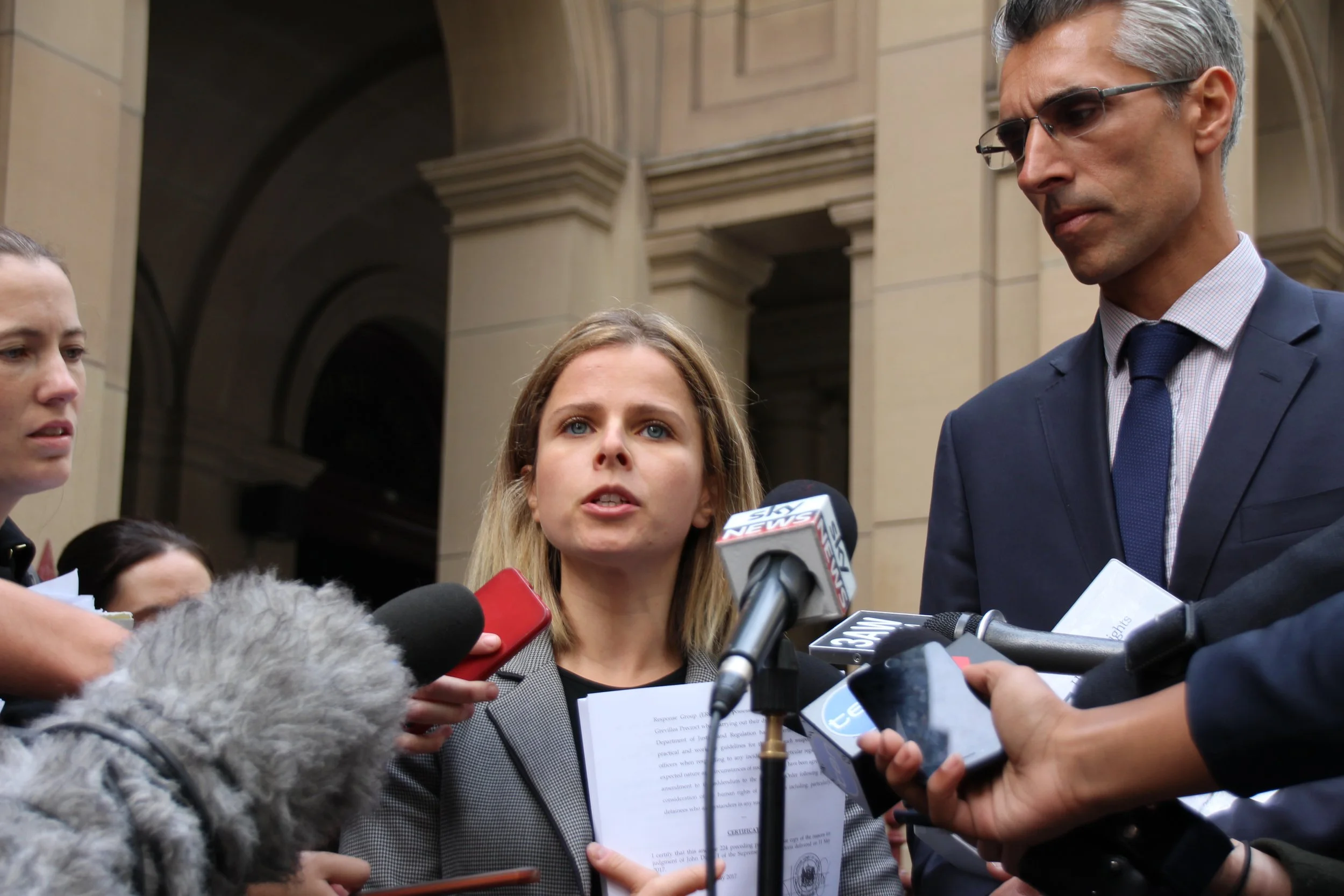
101 cases
of how Human Rights ACTS make our lives better
No matter who we are or where we are, our lives are better when we all treat each other with fairness and respect and when we can all enjoy our rights and freedoms. Human Rights Acts and Charters promote respect for human rights and give people power to take action if their rights are breached.
The 101 cases set out here highlight the benefits Human Rights Acts and Charters have brought to people in the ACT, Victoria and Queensland. These cases also highlight the need for a national Human Rights Act, as well the need for Acts or Charters in states and territories which do not yet have them.
We designed this resource to inspire people to use Human Rights Acts and Charters where they exist in Australia; and to join with others in calling for a national Human Rights Act and Charters in every state and territory.
Click here to add your name to the call for a Human Rights Act.
CASE STUDIES
Aboriginal children jailed in adult prison: Human Rights Act in action
Bendigo mosque and freedom of religion: Human Rights Act in action
Will Ingram and the right to equality: Human Rights Act in action
Queensland and the right to housing: Human Rights Act in action
The right to education for children seeking asylum: Human Rights Act in action
Victorian pandemic laws: Victorian Charter of Rights in action
101 Cases
Human Rights Acts and Charters Make Our Lives Better.
Here are 101 cases showing how
Case 77: Family of seven protected from homelessness
A family of seven had experienced great difficulty in receiving financial support and secure housing since arriving in Australia.
Case 79: Teenage sisters separated from family avoid homelessness
Two teenage sisters were studying full time and living in public housing with their parents.
Case 81: Eviction of parents and newborn twins prevented
A refugee from Somalia was unable to attend a bail hearing due to the birth of his twin daughters.
Case 86: Supreme Court finds that children held in maximum security prison were deprived of their human rights
After riot damage to a youth justice centre, the Victorian Government set up a new youth justice centre in a unit in the maximum security adult Barwon Prison and started transferring children as young as 15 there.
Case 92: Human rights focus in advocating for people in prison during the COVID-19 pandemic
The human rights of people in prison were significantly affected during the COVID-19 pandemic.
Case 94: Child with a disability exempted from detention in hotel quarantine
A family detained in hotel quarantine in Queensland complained to the Queensland Human Rights Commission about the impact of the detention on their child who has autism spectrum disorder.
Case 26: Meaningful access to Aboriginal culture in out-of-home care
Aboriginal children are over-represented in child protection systems and are often removed from their family and placed in the care of non-Aboriginal families.
Case 30: Addressing the over-imprisonment of Aboriginal women in prison
Aboriginal women are the fastest growing prisoner group in Victoria and are significantly over-represented compared with non-Aboriginal women.
Case 44: Aboriginal children returned to the care of their grandmother
Four Aboriginal siblings were placed in protective care because of concerns for their safety. At first, the children were placed in a non-Aboriginal home and separated from one another.
Case 52: Protecting a single mother of three from homelessness
The Ministry of Housing tried to evict a single mother from public housing after it was found that her boyfriend was growing marijuana on the premises.
Case 59: Single mother with a disability avoids having her daughter being removed from care
A single mother with cerebral palsy was at risk of having her daughter being removed from care by child protection authorities.
Case 60: Student with a disability avoids being expelled
A child with a learning disability was threatened with expulsion by his school due to some behavioural issues.
Case 67: Criminal law process that would undermine a child’s rehabilitation is stopped
A child was charged with an offence. Police stated that the charge would be withdrawn if the child agreed to provide a statement and evidence against another person who was jointly accused of the crime.
Case 68: Family provided with appropriate secure housing
A woman from a refugee background was living with her children in public housing.














